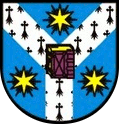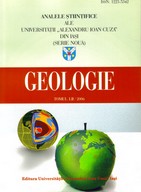
English title
- SERIA
GEOLOGIE (AUI-G) - |

|
| Log in New account |
| Home | Main Page | Guide for Authors | Peer Review | New Articles | Events | Archive | Index | Contact us |

|
Peer review
Peer review process
a. First assessment of the submitted article, by the editor/editorial board secretary in order to evaluate whether the article fits to the aims/scope of the journal.
b. If so, the article is sent to two reviewers; AUI-G use the single blind review (the names of the reviewers are hidden from the author, unless the reviewer wants to be identified). c. The reviewers assess the article by checking for significance, presentation, evidences, reasoning, lengths, ethics, quality of English etc. and make recommendation to accept/revise/reject to editor/executive editorial staff. d. If there are major differences of opinion between the two reviewers, a third opinion is required by the editor/executive editorial staff. e. The editor/executive editorial staff makes final decision based on reviewers’ comments. A guide to reviewing (after ELSEVIER Reviewers’ Guide, modified)
a. On being asked to review
The first item to consider when asked to review, is whether the article you are being asked to review truly match your expertise. The AUI-G editor/editorial board secretary, who has approached you, may not know your work intimately, and may only be aware of your work in a broader context. Only accept an invitation if you are competent to review the article. If you believe that the article is relevant, next to consider is whether you have the time to review it. Reviewing an article can be quite time consuming and you need to be sure that you have sufficient time before the deadline stipulated in the invitation to conduct a thorough review. If you cannot conduct the review let the editor know immediately, and if possible advise the editor of alternative reviewers. Another item to consider is whether there are any potential conflicts of interest.
b. Conducting the review
Reviewing needs to be conducted confidentially; the article you have been asked to review should not be disclosed to a third party. If you wish to elicit opinion from colleagues or students regarding the article you should let the editor know beforehand. The editor/editorial board secretary should be informed of any intention to contact the author of the article. Please read carefully the AUI-G Guide for authors before reviewing the article and evaluate it based on criteria provided in the Review Form that accompanies the article to be reviewed. AUI-G encourages additional comments on issues as originality, structure, language, previous research, ethical issues (e.g. plagiarism, fraud) etc.
c. Communicating your report to the editor
Once you have completed your evaluation of the article, fill the Review Form; providing a quick summary of the article at the top of your report might be helpful. When providing commentary you should be courteous and constructive; do not forget to consider how you would react to receiving your own suggestions. Do not include any personal remarks. You may want to consider including your name on the report with a note informing the editor that you would agree for the author to know who it was the reviewer of the article. When you make a recommendation regarding an article, it is worth considering the categories an editor will likely use for the classifying the article: - Reject (due to poor quality, or out of scope); - Accept without revision; - Accept but needs revision (either major or minor). If you think the article needs to be revised, indicate to the editor clearly identifying what revision is required and advise whether or not you would agree to review the revised article. |
copyright © 2026 Department of Geology |